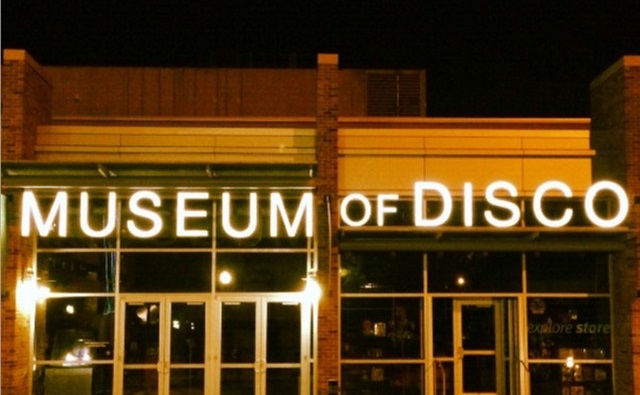 Here it is. Consider it an early Christmas gift.
Here it is. Consider it an early Christmas gift.
I don’t think I’ve made a more unusual end-of-year playlist. Hopefully, it is explained at least in part by the liner notes.
Until next year, enjoy the MUSIC!

Taido J. Chino, Ph.D.
 Here it is. Consider it an early Christmas gift.
Here it is. Consider it an early Christmas gift.
I don’t think I’ve made a more unusual end-of-year playlist. Hopefully, it is explained at least in part by the liner notes.
Until next year, enjoy the MUSIC!
It is that time of year again. Man CD time. Most of you here already know what this is all about. For those of you who don’t, the concept is simple enough. A group of men turn in a song that they enjoyed (the most?) over the past year. The songs are then compiled and arranged, then lo and behold – Man CD.
Ok, that’s about it. HERE is the link to the goods. HERE is a link to a pdf that just has the track listing and who submitted them.
I feel the need to explain my submission. I don’t believe it was anything close to my favorite song, but I did feel that it was an appropriate lead off song for the group of men who put Man CD together. Honestly, the VIDEO is better than the song… sort of.
As I was preparing for some teaching I’ll be doing this Sunday, I came across this great quote in Miroslav Volf’s Free of Charge: Giving and Forgiving in a Culture Stripped of Grace. I can’t believe that I didn’t include it a few months ago when I was doing my round-up of Volf-isms.
Though I used to complain about the indecency of the idea of God’s wrath, I came to think that I would have to rebel against a God who wasn’t wrathful at the sight of the world’s evil. God isn’t wrathful in spite of being love. God is wrathful because God is love.
Once we accept the appropriateness of God’s wrath, condemnation, and judgement, there is no way of keeping it out there, reserved for others. We have to bring it home as well. I originally resisted the notion of a wrathful God because I dreaded being that wrath’s target; I still do. I knew I couldn’t just direct God’s wrath against others, as if it were a weapon I could aim at targets I particularly detested. It’s God’s wrath, not mine, the wrath of the one and impartial God, lover of all humanity. If I want it to fall on evildoers, I must let it fall on myself – when I deserve it.
Also, once we affirm that God’s condemnation of wrongdoing is appropriate, we cannot reserve God’s condemnation for heinous crimes. Where would the line be drawn? On what grounds could it be drawn? Everything that deserves to be condemned should be condemned in proportion to its weight as an offense – from a single slight to a murder, from indolence to idolatry, from lust to rape. To condemn heinous offenses but not light ones would be manifestly unfair. An offense is an offense and deserves condemnation.
Nice cheery thoughts to get you ready for a Happy Thanksgiving!
Recently, I was having a conversation with somebody about education reform in our state. For whatever reason, it is actually a conversation that I find myself in pretty regularly. In these conversations, I repeatedly reference a talk given by Roland Fryer that I heard several months ago. It was at one of those leadership conference things where you hear something like eight speakers in as many hours, and his was the only presentation that I remember at all.
Fryer is a Harvard economics professor, who has taken a keen interest in education reform. The presentation he gave was fascinating, and I’ve repeatedly tried to track down the talk with no success. However, there is plenty of other stuff out there by him, and it might be worth thirty minutes of your time to figure out what he’s all about.
The thing that I remember most from his presentation was this one thought…
We know what steps to take to reform education in America, but for the most part policy-makers simply aren’t interested in change.
My guess is that this applies to a whole lot more than education.
Don’t pretend like you haven’t missed it. I know you have. This is the “live show” edition of Four for Friday. Two of these artists I’ve seen recently. One group I plan to see soon. And it would be great if K’naan came to Little Rock sometime, but I’m not holding my breath. Enjoy.
Matisyahu – Tel Aviv’n // Had the chance to see him about a month ago. Lots of fun!
GRiZ – Smash the Funk // I went with a few friends to see this guy open for Big Gigantic a couple weeks ago. Honestly, one of the most interesting musical performances I’ve ever witnessed. Whether you like it or hate it, as one of my friends said, “this is the direction music is heading.” Yup.
Bear Colony – Flask Retort // They’ll be at the Rev Room in about a week.
K’Naan – Is Anybody Out There? (feat. Nelly Furtado) // Not local.
Right now, I’m reading a few books and each is proving helpful in their own way. Two minutes on each…
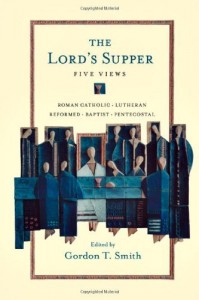 The Lord’s Supper: Five Views // I realize that most people are unaware that there are more than two view, but I was somewhat surprised to discover that there are no less than five! Over the last few years, I have been moving from a memorialist (symbol only) understanding of this observance to a more sacramental (real presence) view. Of course, I don’t have it all worked out, but I think that’s probably as it should be… with the Lord’s Supper as well as most theological truth. If you’ve got it all figured out, let me know… you’ll be the first.
The Lord’s Supper: Five Views // I realize that most people are unaware that there are more than two view, but I was somewhat surprised to discover that there are no less than five! Over the last few years, I have been moving from a memorialist (symbol only) understanding of this observance to a more sacramental (real presence) view. Of course, I don’t have it all worked out, but I think that’s probably as it should be… with the Lord’s Supper as well as most theological truth. If you’ve got it all figured out, let me know… you’ll be the first.
 Next up is The Awakening of Hope: Why We Practice a Common Faith // I think I mentioned this one a while back. Somehow a group of guys I meet with on Monday mornings agreed to read this with me. To say that it has provoked some interesting conversations and several “eye-rolls” is an understatement. So not everyone thinks the “new monasticism” is a wonderful expression of the Christian faith… their loss.
Next up is The Awakening of Hope: Why We Practice a Common Faith // I think I mentioned this one a while back. Somehow a group of guys I meet with on Monday mornings agreed to read this with me. To say that it has provoked some interesting conversations and several “eye-rolls” is an understatement. So not everyone thinks the “new monasticism” is a wonderful expression of the Christian faith… their loss.
 Now we are venturing more towards my true “nerd” center. This one is for a what is turning into a lifetime project of research and writing on 1 Peter’s use of the Old Testament. Hengel, a German New Testament scholar, passed away a few years ago. He was one of the most influential theologians of the past century. I know you’ve never heard of him. He was German, so maybe it is understandable. He’s no Francis Chan. This book was one of the last that he published.
Now we are venturing more towards my true “nerd” center. This one is for a what is turning into a lifetime project of research and writing on 1 Peter’s use of the Old Testament. Hengel, a German New Testament scholar, passed away a few years ago. He was one of the most influential theologians of the past century. I know you’ve never heard of him. He was German, so maybe it is understandable. He’s no Francis Chan. This book was one of the last that he published.
 You have stopped reading by now, so it doesn’t matter, but this one is also for the thesis. For what it is worth, I think Beale’s understanding of the way in which New Testament writers utilize the Old is probably as close to “right” as it gets. Hopefully, the approach he recommends is what I’ll be using in the months to come.
You have stopped reading by now, so it doesn’t matter, but this one is also for the thesis. For what it is worth, I think Beale’s understanding of the way in which New Testament writers utilize the Old is probably as close to “right” as it gets. Hopefully, the approach he recommends is what I’ll be using in the months to come.
One of the things that keeps me from blogging is that I feel like every time I put something up, it needs to be great. The sad reality is that whether I spend a couple hours or a couple minutes, greatness is rarely achieved. So here’s a stab at something new… take ten. The goal… take ten minutes to get something on the screen and then I’m done. If I don’t finish in ten, then it waits until the next time. Installment one… sharing the various Castle Bluff videos from our previous two camps.
At camp, we usually show a short video as students are gathering in the meeting space. They are often dumb, sometimes amazing, occasionally humorous. Without futher ado, here they are…
A capella Gangnam style:
Manly men rapping:
It is amazing what human beings can do:
A Star Wars and Motocross mashup:
I like skiing:
A few extras:
Outtakes from the crazy bike video:
Bottles beware:
Can’t get enough Gangnam:
Here’s to sub-par blogging. See you soon.
Part 3 of some reflections on my father (Part 1, Part 2). If you were frustrated by having to read it in five-hundred word segments (apparently the upper limit of what folks can read in one sitting these days), the whole thing can be read HERE.
________________________________________________________________________________________________________________
These remembrances provide small glimpses into who my father was in the quieter “joys” of his every day life. In his study, he was able to pursue his curiosity as well as his creativity. Through his cooking, he expressed his routine daily care for the people in his life. Wandering the mountains, he was free to enjoy the beauty and majesty that a moment-in-time can afford. These things have become his legacy to me. While his joys remained a secret to me for a long time, it was not because they weren’t there to be recognized. The problem was my inability to recognize them. I have only recently been able to discover these things to be true about him through my recognition of the way these same pursuits have “charmed” me.
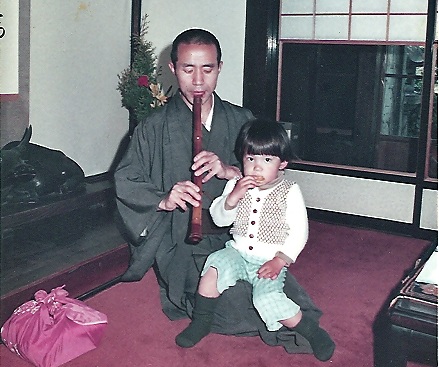 I suppose this means that I have now come full-circle (which I understand is a very Zen thing to do), in that I no longer strive to be unlike my father. I am growing in my recognition that while we are all tragically flawed in various ways, there is also much that is wonderful in each of us. One of the unfortunate consequences of focusing exclusively on the negative is that we miss out on the opportunity to embrace all that is good.
I suppose this means that I have now come full-circle (which I understand is a very Zen thing to do), in that I no longer strive to be unlike my father. I am growing in my recognition that while we are all tragically flawed in various ways, there is also much that is wonderful in each of us. One of the unfortunate consequences of focusing exclusively on the negative is that we miss out on the opportunity to embrace all that is good.
The Christian tradition of which I am a part makes much of the notion of grace. Indeed, many would say that it lies at the very heart of Christian teaching. That somehow, in and through the Christ, we can discover forgiveness for all the pain and suffering we inflict on others as a result of our brokenness and selfishness. It was this idea of forgiveness that drew me to Christianity over twenty years ago.
And yet, in the last decade this theological tenet has shifted from simply being an idea that is endorsed to a reality that is experienced. Through my openness to living in that grace-filled reality, I have come to recognize that my father is just like the rest of us. He (and I) are broken human beings in need of grace and forgiveness. And as much my father is in me, when I extend grace to him I discover that I am likewise extending it to myself.
“He will turn the hearts of the fathers to their children, and the hearts of the children to their fathers.”
Malachi 4:6
________________________________________________________________________________________________________________
Much like the essay, the time spent at the memorial weekend was irenic. I don’t know why I would have expected anything less. Buddhists are sort of known for being peaceable enough folks. Even though I hadn’t seen some of these people in thirty years, I was surprised with how easily names and faces came flooding back to me. New friends were made. Old friendships were rediscovered. But mainly, I was grateful for the rare and wonderful opportunity to – in a way – go back in time and see familiar people and places with different eyes. Hopefully, these eyes have grown to be a little more humble, more understanding, and more appreciative. And hopefully, seeing the world this way will become my new “normal.”
Ok, that’s a whole lot of personal out there. Don’t be expecting this to become a regular thing around here. Much more of this and I’ll be needing a Xanax prescription. Thanks for taking the time to read. Hopefully, it was a window into who my father was… and who I am becoming.
We’re back with Part 2 (out of three) of my reflections on my father. I should mention that this was written for a mostly Buddhist audience, which is why a few of the terms will likely be unfamiliar to you. I’ll save you the trouble of Googl-ing them for yourself.
________________________________________________________________________________________________________________
My father had a study in his home. Actually, I believe it was more of a large closet that was converted into a study. Inside the small room a zabuton and zafu were positioned in front of a low table. On and around the table were a collection of writing supplies, brushes, inks, paper, and lamps. But what dominated the space were his books. He had what seemed like thousands of books arranged in stacks, placed on shelves, resting on the table and under the table. There probably was a system, but it remained a mystery to anyone other than himself.
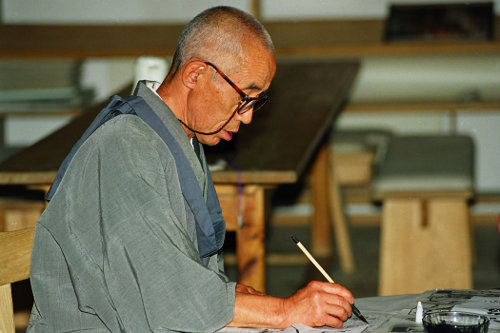 This small room was simultaneously his private zendo, library and art studio. And while he didn’t stay in permanent seclusion, it was not uncommon to find him toiling away over parchment, painting or tome at any time of day (or more often night). I used to think it strange that he would spend so much time cloistered away. Now I understand that there was something sacred about that tiny sanctuary, and I find myself attempting to re-create similar rhythms and spaces, hoping to find a small place of respite inside an otherwise busy home and an otherwise busy life.
This small room was simultaneously his private zendo, library and art studio. And while he didn’t stay in permanent seclusion, it was not uncommon to find him toiling away over parchment, painting or tome at any time of day (or more often night). I used to think it strange that he would spend so much time cloistered away. Now I understand that there was something sacred about that tiny sanctuary, and I find myself attempting to re-create similar rhythms and spaces, hoping to find a small place of respite inside an otherwise busy home and an otherwise busy life.
If he wasn’t in the study, the next most likely place to find him was in the kitchen. He gave careful attention to the preparation of food and was a remarkably adept cook. Much like his religious beliefs, he took the cuisine of his ancestral heritage and adapted it for a new cultural setting. Rice was a non-negotiable, but it was always served with some other traditional Japanese dish that typically included some of his own improvisations.
Of all the food items he prepared, the “rice-ball” will be the one that remains forever etched into my memory. It’s simplicity, portability, and novelty has no rival. Anytime I was traveling some distance, without fail he would send with me a couple of seaweed wrapped balls of rice that were slightly larger than my fist. Which Japanese pickle I might find pressed into the center of this ball was always a surprise, but the pungent flavor of the umeboshi was undoubtedly my favorite.
While I believe he found great pleasure in giving himself to the mysterious intermingling of truth, beauty, routine service and compassion that was to be found in the study and kitchen, he seemed most at home with himself when he was outside enjoying nature. It mattered little if he were spending a couple hours (or nights) bivouacked by his perpetually under-construction house, wandering the slopes of El Salto, or gracefully gliding down the snow covered mountainside. There was something about being close to creation that breathed life into him.
While my father enjoyed interacting with people in certain times and places, truth be told I think he found verbal communication taxing. He could be wonderfully clever and profoundly ambiguous all within the same breath, but in day-to-day life he could allow hours to pass with little to no talking. Indoors, silence can be strange. But under a canopy of trees, with the soft earth underfoot, being quiet seems the normal thing to do. Which is perhaps why he seemed more at home and more himself when he was outside.
“The joys of parents are secret, and so are their griefs and fears.”
Francis Bacon
Some months prior to the ten-year memorial, my father’s dharma heir (spiritual successor) encouraged me to write a contribution to a collection of essays about my father that they were planning to make into a book. Reluctantly I told him I would, but I knew that writing it would be no easy task. I was right.
Despite its brevity – maybe a couple of typed pages – it took what seemed like days to put it together. The difficulty wasn’t so much that it was gut-wrenching (I don’t do personal, and I don’t do gut-wrenching), but because finding the right things to say proved to be immensely challenging. However, through a sheer act of will, I managed to gather some thoughts that I felt were honoring and honest and clicked ‘send.’
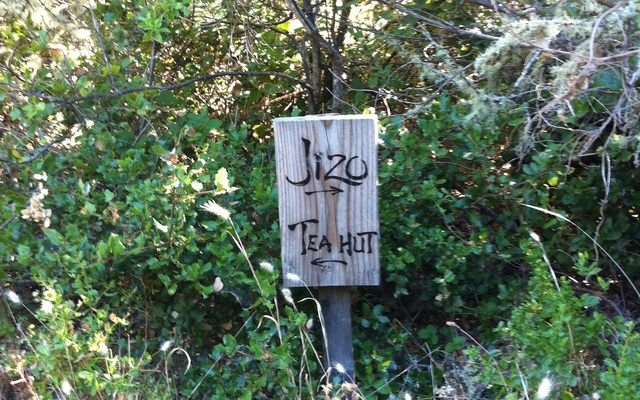 Unsurprisingly, when I arrived at the memorial several months later, there were boxes of modest blue books entitled appropriately enough Remembering Kobun. Here’s what I remembered…
Unsurprisingly, when I arrived at the memorial several months later, there were boxes of modest blue books entitled appropriately enough Remembering Kobun. Here’s what I remembered…
_____________________________________________________________________________________________________________________
“Sons have always a rebellious wish to be disillusioned by that which charmed their fathers.”
Aldous Huxley
Like many young men who find themselves struggling to come into their own, I can remember making a commitment early in life to be nothing like my father. The list of things I intended to reject was a long one. I wanted none of his flaws, his temperament, his beliefs, his failures, his demons. So with reckless abandon, I attempted to purge all that was “Kobun” inside of me.
Yet, the passing years have confronted me with the truth that most adult children are forced to come to terms with eventually.
We are our parents.
And with the same inevitability as the downhill flow of water, it seems that each year takes me one step closer to resembling him, and not just in the face. In fact, the likeness may be least of all in physical appearance. Rather, it has been those characteristics that lie beneath the skin, and yet are so unmistakably recognizable, in which the similarity between father and son is most pronounced.
The more vivid memories of life with my father come from my adolescence during which time he was living in Taos. Every year, I would spend a number of weeks with him filled with leisurely days generally unstrained by his need to fulfill public expectations. Reflecting on these visits has been like looking into a window of a past life and having the chance to see him for the man he was outside of the public eye.
_____________________________________________________________________________________________________________________
Ok, I think that’s enough “personal” for one day. Check back in a day or so for Part 2.
;
;
;